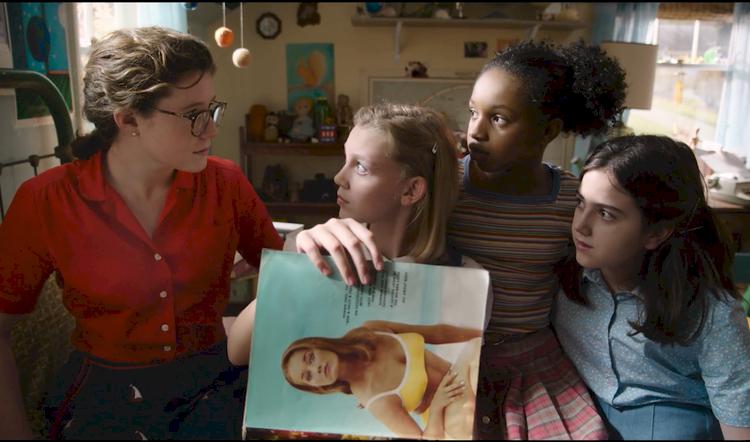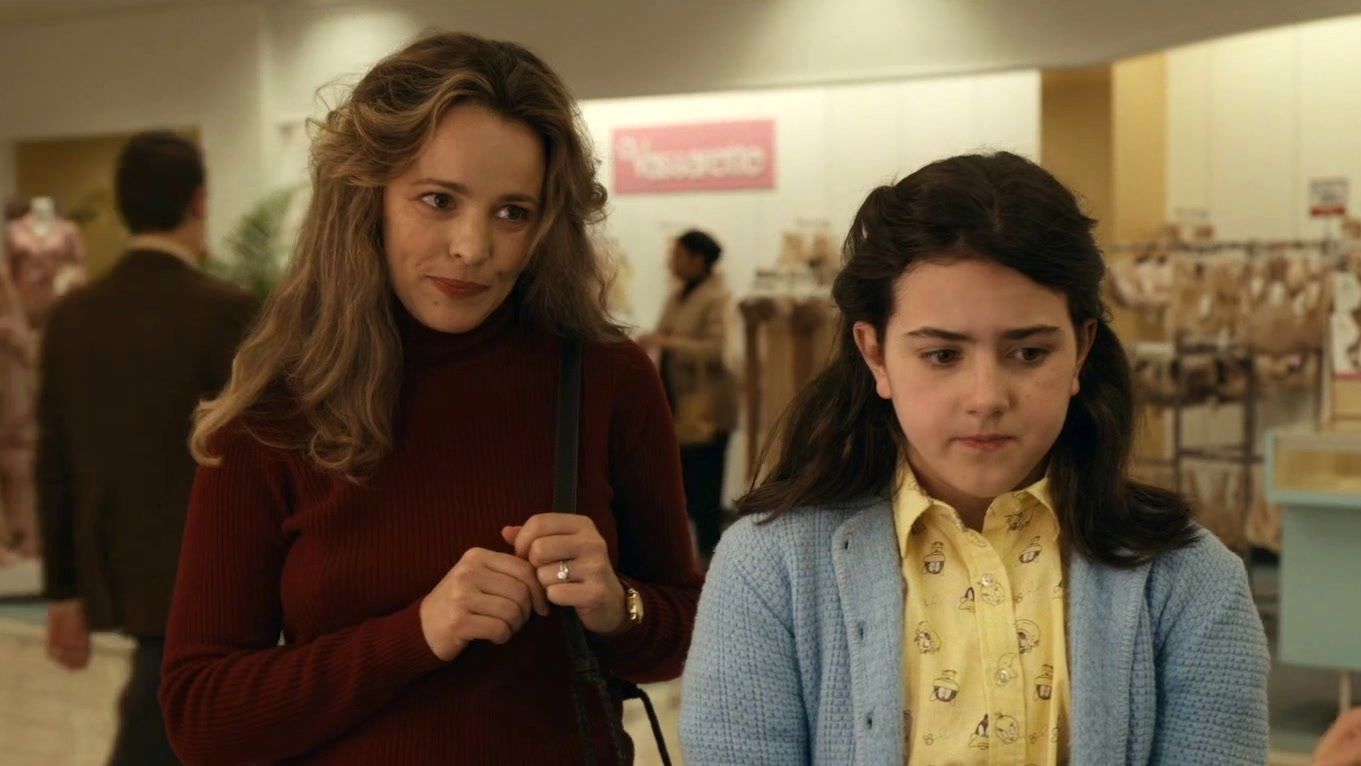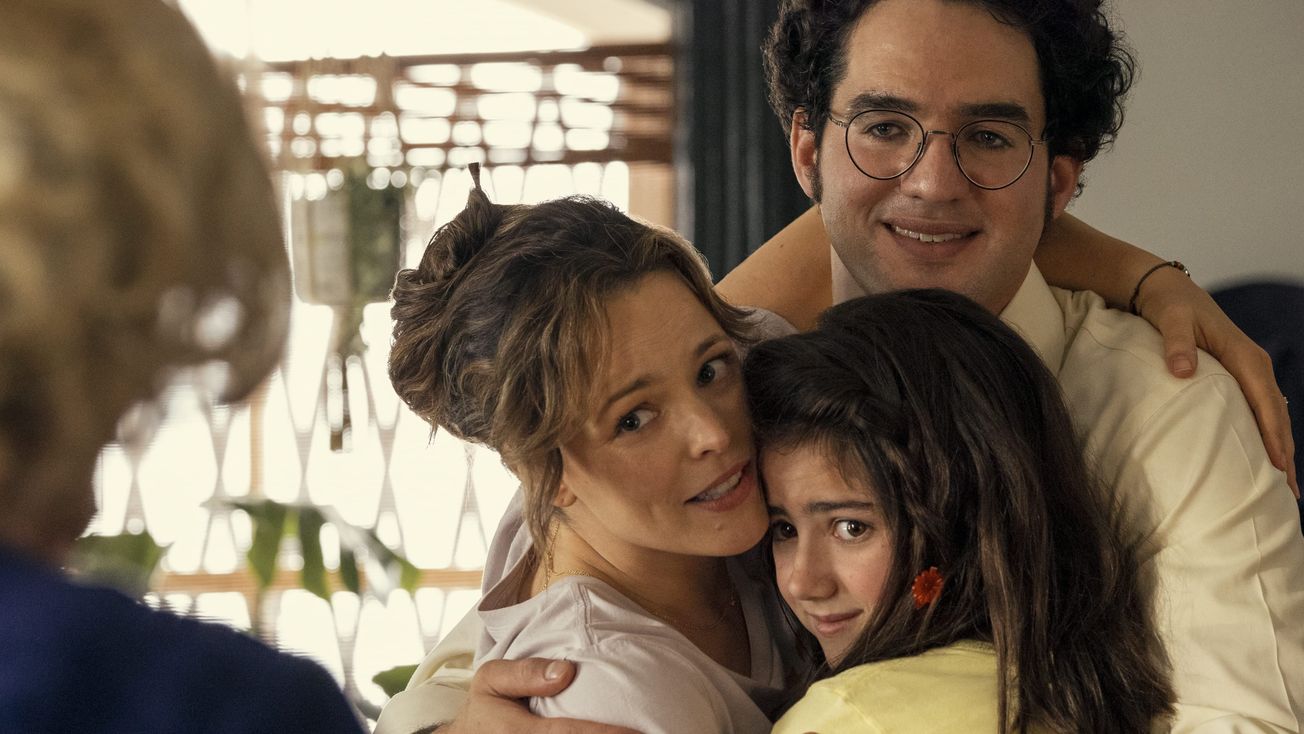By Rebecca Ferner, Second Year, English
The phrase “we must increase our busts”, grimacing faces at a Sex-Ed talk and a spinning bottle follow you fervently out of the cinema after watching Are You There God? It’s Me, Margaret (2023) But this giddy and laugh-out-loud film is also laced with a heartfelt sentiment as the pressure to define your identity is explored throughout the generations.

The nostalgia of summer camp initiates the film’s entrance into the chaotic world of adolescence. Vibrant colours spring out of the screen, embodying both the era of the 70s and the vitality of a twelve-year-old girl’s perception. Margaret is told by her parents that they will unexpectedly be moving to New Jersey, and instantly finds herself facing a new milestone: puberty. On top of this, she is stuck in the middle of a religious debacle, her mother being a Christian and her father being Jewish, embarking on a journey of discovery.
Kelly Fremon Craig’s direction lets us know that awkwardness doesn’t stop once puberty does. Rachel McAdams is cast perfectly as a maternal figure, exuding an unburnt youth and creative energy as she veers away from her artistic lifestyle. Both Margaret and Barbara aim to fit into social groups with melodramatic leaders: Nancy, as head of the secret girl’s club, flounces a feather boa, whilst the school’s mother hen is dressed strictly in one colour with flashy jewels.

As both Margaret and Barbara submit in different ways their storylines successfully and hilariously blend to reveal the ceaseless desire to belong. The moment where they simply sit next to each other on their sofa is particularly poignant. They breathe out in frustration, looking so similar they could be sisters.
Impossible to ignore is Sylvia, Margaret’s Jewish grandmother, who steals the screen. She stays behind in New York, but her humorous, self-deprecating comments do not, as she lets her relatives know ‘When you don’t have any loved ones around your life expectancy drops’.
Abby Ryder Forteson carries the film beautifully as Margaret, with intimate close-up shots only making her wide-eyed expressions larger. The inner dialogue that often starts with the iconic ‘Are you there God?’ reveals a young girl trying to feel something larger than herself. Which religion will she identify herself with? Exquisitely done, Craig blends moments of silliness with the deeper question of faith. After the serious and tear-jerking conversation about Margaret’s absent grandparents, Barbara playfully asks if it’s time for bra shopping. Church bells fade into adolescent scenes of discovery. ‘Please God let it be a lady,’ says the protagonist when buying her first sanitary products at the till. Margaret’s God becomes more of a diary addressee, less attached to a specific religion, but rather an amplification of the difficulty in navigating life and finding one’s identity.

A minor slump occurs in the middle of the film as the silliness slightly overflows, asking for the more serious exploration of religion to come faster. When it does (no spoilers), it reaches a climactic and heart-aching altitude, reminding us of the innocence of childhood. Could Craig go further in confronting the issues raised? Perhaps, but after all, Margaret has only aged one year by the end of the film, and her God is constantly shifting. There is no need to identify herself quite yet, which is perhaps the main message of the film.
Are You There God? It’s Me, Margaret put a smile on my face and had me singing ‘Son of a Preacher Man’ on the way back home. This is a must-see film for all of us who want to reflect on the exuberance of twelve-year-old days, but to also consider the challenging aspects of living in a world with many different beliefs.
Image courtesy of IMDB
Did you enjoy this adaptation of the Judy Blume classic?









